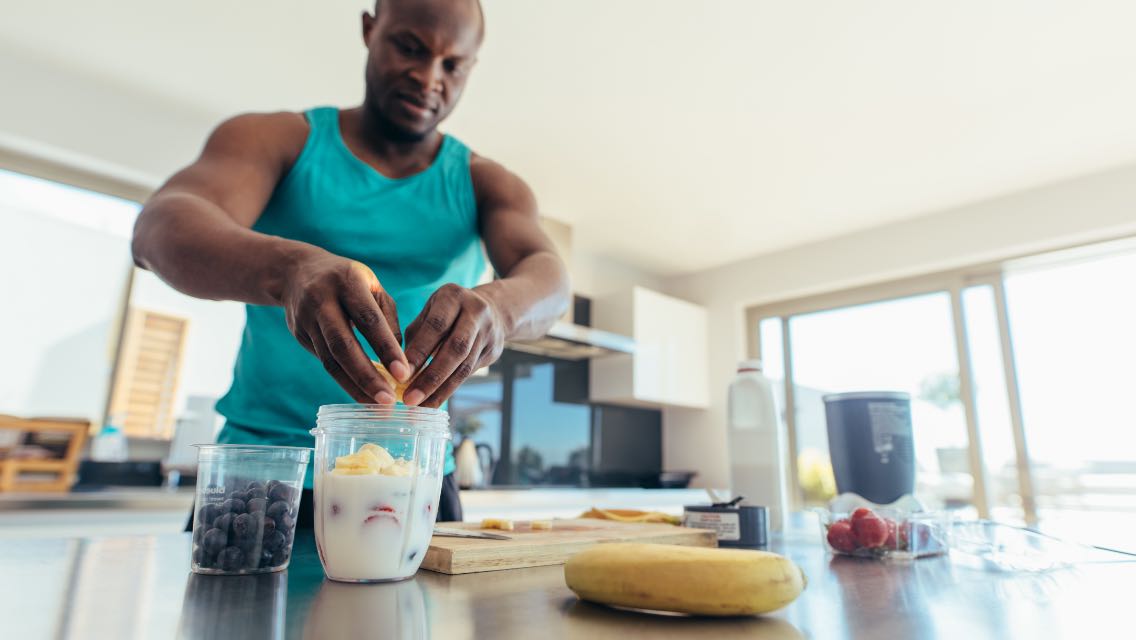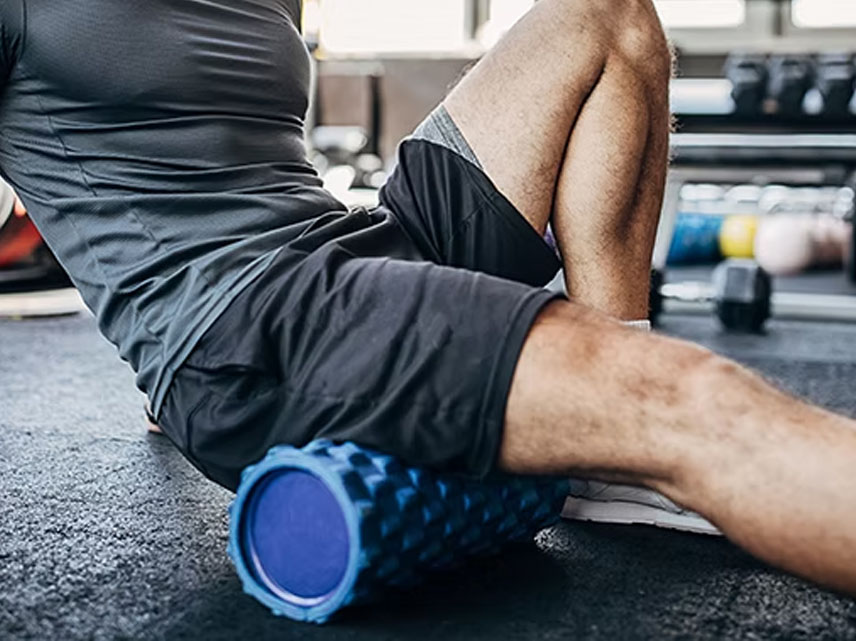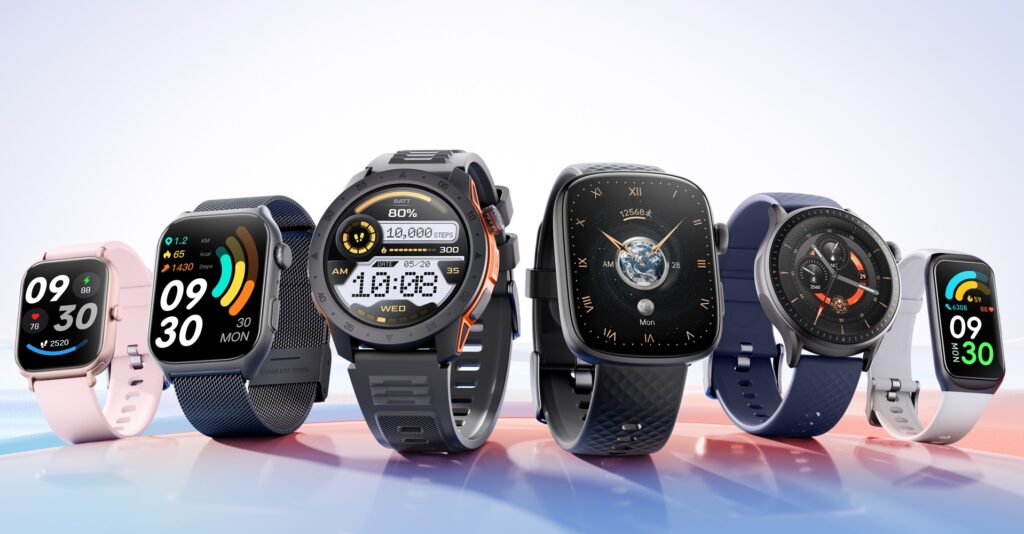Pre-Workout Nutrition: What to Eat Before Exercise
When it comes to maximizing your workout performance, what you eat before exercising can make a significant difference. The right pre-workout nutrition fuels your body, enhances energy levels, supports muscle performance, and even improves recovery afterward.

Recent Blogs
- How to Style a Cozy Reading Nook Anywhere
- Designing Interiors with Mood in Mind
- Top 10 Budget Laptops of 2025 That Offer Great Performance
- Top 10 Wearable Tech Devices You Should Know About in 2025
- The Complete Guide to Great Sport Accessories for Every Activity
- 10 Must-Have Smart Kitchen Gadgets for Modern Homes in 2025
- Your Guide to Understanding Skin Types and Choosing Products
September 25 03
When it comes to maximizing your workout performance, what you eat before exercising can make a significant difference. The right pre-workout nutrition fuels your body, enhances energy levels, supports muscle performance, and even improves recovery afterward.
But not all workouts require the same fuel. The timing, type, and portion of your pre-workout meal depend on your goals, activity type, and individual digestion.
Let’s break down what to eat before different types of workouts—and how to time it for best results.
Why Pre-Workout Nutrition Matters
- Boosts energy levels to avoid fatigue mid-session
- Prepares your muscles for performance and endurance
- Maintains stable blood sugar for longer sessions
- Prevents muscle breakdown by providing amino acids
- Improves focus and stamina during intense workouts
Key Nutrients to Focus On
1. Carbohydrates
- Your body’s main fuel source, especially for cardio and high-intensity workouts
- Stored as glycogen in muscles and liver for quick energy
2. Protein
- Provides amino acids to support muscle performance and recovery
- Reduces muscle breakdown during strength and resistance training
3. Fats (in small amounts)
- Useful for longer, low-intensity workouts
- Slows digestion—so should be limited close to intense sessions
When to Eat Before a Workout
1–2 hours before workout:
- A balanced meal with carbs and protein
- Ideal for most people
- Gives time for digestion and energy absorption
30–60 minutes before workout:
- A light snack, easy to digest
- Focus on quick-acting carbs with a little protein
- Avoid heavy fats or fiber which can slow you down
Early morning workouts (empty stomach):
- A small carb snack (like a banana or toast) can be helpful
- Or a low-calorie drink if you're doing light cardio
- For intense or long sessions, try to eat something small at least 20–30 minutes before
Pre-Workout Meal Ideas (1–2 Hours Before)
Strength Training or HIIT:
- Grilled chicken + brown rice + vegetables
- Eggs + whole grain toast + avocado
- Oatmeal with banana and almond butter
- Turkey sandwich on whole grain bread
Cardio (running, cycling, etc.):
- Whole grain toast + peanut butter + sliced banana
- Greek yogurt + berries + granola
- Pasta with lean meat and tomato sauce
Smoothie with oats, protein powder, banana, and milk
Pre-Workout Snack Ideas (30–60 Minutes Before)
Light and Quick Options:
- Banana or apple with nut butter
- Rice cakes with honey
- Low-fat Greek yogurt with fruit
- Energy bar with low fiber and moderate carbs
- Small smoothie (banana, milk, whey protein)
What to Avoid Before a Workout
- High-fat meals: Slow digestion and may cause stomach discomfort
- High-fiber foods: May lead to bloating or gas
- Sugary drinks or heavy sweets: Can spike blood sugar, then crash
- Too much caffeine late in the day: Can affect sleep
Hydration Matters Too
Don’t forget water—hydration is crucial for performance and safety.
- Drink 16–20 oz of water 2–3 hours before exercise
- Sip 8 oz 20–30 minutes before starting
- Continue hydrating during your workout if it lasts over 45 minutes
For long or sweaty sessions, you might also need electrolytes (like sodium, potassium, and magnesium).
Supplement Note
Some people choose to add a pre-workout supplement, which may include caffeine, creatine, beta-alanine, or BCAAs. These can help boost energy, endurance, and focus—but are optional and not necessary for everyone.
Final Thoughts
Pre-workout nutrition is about setting your body up for success. Whether you’re lifting weights, running, or just trying to move more, fueling yourself with the right foods at the right time can make workouts feel easier and more effective. Start simple, pay attention to how your body responds, and fine-tune your pre-workout meals for your specific fitness goals.
Comment:
Your email address will not be published. Required fields are marked *
Our Top Picks
No products found.








